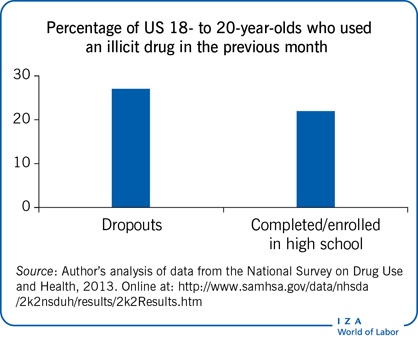Elevator pitch
A non-trivial portion of traffic fatalities involve alcohol or illicit drugs. But does substance use—which is linked to depression, suicide, and criminal activity—also reduce academic performance? Recent studies suggest that the consumption of alcohol has a negative effect on the grades of university students. Likewise, there is evidence that marijuana use reduces the academic performance of university students. Although students who use illicit substances are more likely to drop out of high school than those who do not, this may reflect the influence of other, difficult-to-measure factors at the individual level, such as personality.

Key findings
Pros
Several studies provide convincing evidence that alcohol consumption reduces academic performance as measured by grades of university students.
There is reasonably strong evidence that the use of marijuana reduces the academic performance of university students.
Cons
Alcohol use does not seem to appreciably reduce the probability of attending, or graduating from, university; but more research is needed on this topic.
There is evidence, albeit weak, that drinking reduces the probability of graduating from high school.
Illicit drug use by teenagers appears to be unresponsive to policy intervention, and, as a consequence, very little is known about its relationship to important educational outcomes such as dropping out of high school.